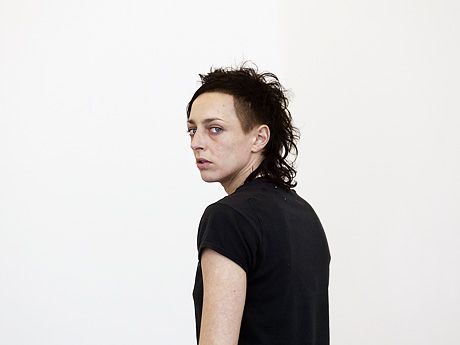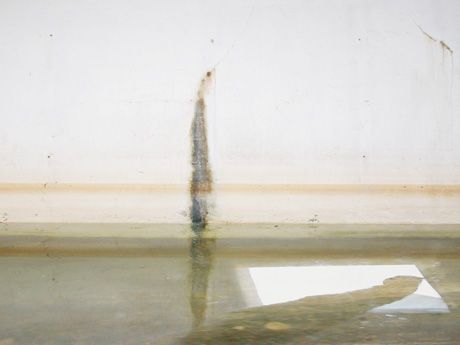Public Property (2004)
Concept & Performance: Simone Aughterlony
Sound Design: Paul Lemp
Video Artist: David Hera
Promotion/ Design: Tine Van Aerschot
Lighting Design: Ursula Degen
Co-production:
Theaterhaus Gessnerallee Zürich, Productiehuis Rotterdam (Rotterdamse Schouwburg)
The work must be firmly ambiguous, moral and amoral, self-rightuous in intent and self-denying in stature, communicating in tandem a desire for confession and a denial of responsibility , ethical but disruptive, acknowledging the status of people, belief systems, and power in our culture but refusing to acquiesce.(Douglas Gordon)
«Public Property» seeks a very direct address with the spectator and begins a playful analysis of the implied contract established between performer and spectator through a confrontation with her public and private selves. Some behaviour is willfully exposed but hidden from the camera's gaze, other things like intimate thoughts or actions seem to escape her body almost unconsciously. She is caught between the desire to divulge and the need to maintain face, forever searching for the 'appropriate' way to perform in the circumstances she creates.
Through a play between perceived expectations and self-appointed rules she bravely performs a public speech on the topic of public speaking, she watches herself as if from a distance offering obscure interpretations on her banal and private meanderings and she reluctantly drags herself backwards along the floor and out of the space repeatedly by the momentum of her swinging legs - excusing herself all the while.
«Public Property» reflects upon the codes for the representation of emotions and asks if one really knows what pleasure or pain looks like? Are our readings on some level not just an acknowledgement and replaying of images we see in films and media? A formalised and well learnt set of codes to define others emotions and our own.
It explores the desire to make our various private selves (partially) visible, to make something public knowledge, to make it real and to give up at least a little responsibility for what transpires thereafter.

